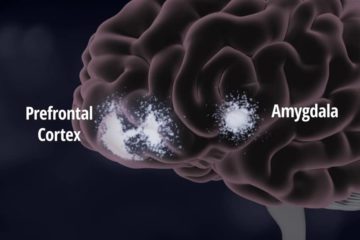Hi guys. I got to reading some stuff on Facebook recently that got me to thinking about how much suffering there can be during the holidays, and how this suffering disproportionately affects LGBTQ people. We have lots of reasons for that, like dealing with the incessant undercurrents of homophobia, families who reject us, and the fact that our dating pool is about a tenth the size of everyone else’s.
So this post is all about self-care for anyone quietly suffering out there, and it’s my sincere hope that it will help. At least a little, at least for a little while. Big hugs to everyone.
 1. How you focus your attention matters.
1. How you focus your attention matters.
What you think about matters. What and how you’re focusing your attention on matters. What thoughts you dwell upon matters. And when you sink into depression, mainly the thoughts you are focusing on and keep returning to are all the dark and negative ones. In thinking about self-care, it is imperative that you find a strategy for breaking up this skipping record of negativity.
“Oh, easy for you to say. You make it sound like that’s a simple thing to do.” Sarcastically, you add, “Sure, lemme just turn off the spigot of negative emotion. No problem. Gee, why didn’t I think of that??”
Look, I’m telling you this as someone who’s suffered from depression on and off since I was a teenager. I get it. I’ve been in some pretty dark places before. (Heck, you should have figured that out already about me if you’ve read my latest novel, plus I talk about some of what I go through in this post on doubt and insecurity.) I’ve had those days when I’ve wondered, “Maybe today will be the day I just end it all.”
But over time, I learned this important lesson about choosing which thoughts I give energy to and which I don’t. It didn’t happen overnight; it was a skill that took many years to learn and which I’m still working on. And I can’t claim that I’m always 100% successful at it, but I can say that these days, instead of getting depressed and staying depressed for weeks or months, my dark cloud of depression will last for a day or two or three and then lift.
To illustrate the point, let me tell you a quick story about a really close friend of mine:
About seven years ago, my friend (who is a queer woman, btw) was deeply, deeply depressed and suicidal. To make a long story short, she went into a meditation retreat for a few weeks and there she discovered something important about her own mind: For as much capacity as she had for darkness, she also had within her a tremendous capacity for joy and love. So why was she only focusing on the darkest parts of her mind, when she could make a decision to focus on the parts of herself capable of love? Now, I’m *NOT SUGGESTING* you should do what she did, but she got off all her anti-depressants when she had that realization, and she’s never gone back on them since. Today, she’s a happily married therapist who helps others overcome their depression by utilizing her own experience.
The point: Watch out for the stories you tell yourself and the thoughts you stay focused on. If you are constantly telling yourself and others how depressed you are and how you are a hopelessly depressed person, that will only entrench your depression even further. Instead, recognize that actually you DO have an innate inner ability to experience joy, love, and happiness, and make an effort to focus more on those thoughts and less on the dark ones. This is true even if you suffer from a condition like bipolar. Yes, it might be harder for you than for others, but my friend’s bipolar, too, and I fully believe that no matter *where* you’re at, you can improve. Don’t buy into the idea that you CAN’T improve because of _______ (fill in the blank). That’s just your depression speaking.
2. Don’t buy into the Scrooge stuff.
Speaking of not focusing on the negative, beware of the cynical mind that wants to tear down the holiday season just because it’s more difficult for you than for others.
Giving can actually be joyous. It is fun and it feels good — and is therefore excellent therapy! — to put forth some effort to give to others. There are so many small ways that you can give — it doesn’t have to be all about the nauseating department store television commercials. Don’t be fooled by the commercialism of Christmas; remind yourself of the sheer pleasure of giving (which doesn’t have to be limited to December, by the way).
For instance, one thing I did for many years was to give toys and winter clothes to the Pine Ridge Reservation in the Dakotas. It is the poorest place in America, where something like 80% of the adults suffer from alcoholism. It was a joy to shop for the kids and to know I was helping someone else.
This year, I’m a little broke, so I’ll be doing my charitable giving more in January and February. I’m thinking I’ll probably make some donations to LGBTQ-friendly organizations this year, like the Trevor Project.
The point: Yeah, it’s true — the holiday season is overly commercial and sometimes feels like one big excuse for retailers to pick our wallets clean. But remember how point #1 is to not dwell on the negative? Change how you think about holiday gift-giving and learn to find the joy that comes from a pure-hearted giving.
3. Not having $$ shouldn’t stop you from giving.
“I’m not cynical about giving. The reason I’m depressed is that I’m broke and so I can’t give the way I want to!”
Two points here:
(1)
The best Christmas gift I received last year was from my twenty-five year-old cousin. She’s a poor nursing student, and we’ve hardly spent any time together over the years. In fact, last Christmas was the first holiday we’d spent together since I was seventeen and she was four. I got her a gift card because I felt obligated to get her something (boring). She, on the other hand, got me a coffee mug, a pair of warm socks, and some Throat Coat hot tea. It was a winter care package, she said. It wasn’t much — probably cost her $10 or $12 bucks — but it touched me because, here’s someone who hasn’t spent hardly any time with me over the last twenty years. In reality, we hardly know each other. But she actually put some thought into her gift and made an effort. I, on the other hand, just got her a blinkin’ gift card. She probably spent the same amount as I spent on the gift card, but she’d activated that good heart of giving I talked about in point #2, and I could tell it was fun for her to pick this stuff out for me, and it really touched me.
I resolved to try to be more like my cousin in the future, and make an effort to give out of thoughtfulness rather than obligation. It really changed how I felt about Christmas shopping this year. Same sized budget, bigger sized heart.
So who cares how much money you have to spend? Let go of that worry, and focus instead on doing the most you can with what you have. Make your heart big even if your wallet’s small. In the end, you’ll feel better about a gift you actually put some thought into than spending all that time worrying about not having enough.
(2)
There are so many ways you can give that don’t involve money at all.
This harkens back to point #1 again. I guarantee you that no matter how bummed out you are, there’s someone who’s suffering worse than you are. And yes, I do mean people who are homeless, people with severe disabilities, people who are hungry, BUT I also mean rich suburban soccer moms who are going through a divorce and feel like their lives are falling apart, or white Donald Trump-supporting men who just got laid off from their jobs and are wondering how they’re going to feed their families in 2017.
So make a habit of giving to people wherever you are and whatever you’re doing. All year long, not just now. Give them your love by smiling at them, holding the door open for them, listening to them, spending time with them. Volunteer if you can. Yes, you COULD curl up on the couch with Netflix, your cat, and a bottle of wine, wallowing in your own pain, but you could also get up, walk down the street, and decide not to go back home again until you’ve smiled at ten strangers. Yes, you COULD spend Christmas by yourself doing a Star Wars movie marathon, thinking about how alone you feel, but you could also spend the day volunteering.
Give.
Give.
Give.
Give.
The point: Heartfelt giving will make you feel better. Because when you’re giving from your heart, you’re not focusing on your worries or your own inner darkness, and temporarily not focusing on those things will make you feel better.
4. Doesn’t mean I’m lonely ‘cuz I’m alone.
My relationship status is… complicated. I can almost guarantee it’s way more complicated than yours. Trust me on that.
But one of the most important lessons I’ve learned over the years (see point #1 again) is that loneliness is a state of mind, not a physical condition. There are plenty of people who are surrounded by friends and family and yet feel utterly alone, and there are also plenty of people who are utterly alone but who inwardly feel surrounded by the warm blanket of friends and family.
We create the feeling of loneliness by focusing our thoughts on our aloneness minute by minute and hour by hour until loneliness reaches a crescendo that no amount of wine in the world can touch. You might be grieving the loss of a partner this holiday season, due to literal or metaphorical death, but you *are capable* of making a choice of focusing on points #1 – 3 or focusing on your loneliness.
In this society, we are constantly bombarded with the message that happiness comes from having a partner, and if you don’t have a partner, you’re probably a loser with a capital L emblazoned on your forehead. The Real L-Word, right?
C’mon, don’t buy into that.
Frankly, if you look back at your relationship/s with your Honesty Glasses on, you’ll recognize that most relationships are a mixed bag of ecstasy and agony. And a lot of them, over time, gradually slide over more and more towards the agony side of the scale. Why else would 60%+ of marriages end in divorce?
So watch out for that state of mind that exaggerates the importance of being in a relationship and thereby exaggerates the feeling of being all alone.
In reality, it is impossible to be truly alone. Everything around you, even everything you are, comes from the web of interconnectedness from which we can never separate ourselves. Just think of your personality, for example. The “you” you think you are is in reality a conglomeration of a million small kindnesses you have received over many, many years. Your body comes from the humans and animals that have physically nourished you (this is true even if you’re vegan — bees and earthworms and lots of other things helped make your food!); your mind is the sum total of the countless family members, teachers, mentors, friends, and lovers you’ve had over the years. The home you live in, the pillow you rest your head on at night — all of these things are the results of many people working very hard.
And in various ways, you’re giving back to that web of interconnectedness. Every dollar you spend and place you go, every word you say or type online — all of this touches someone else in one way or another.
So if you’re single this holiday season, or if you have a family you can’t see for one reason or another, just try to remember that this doesn’t mean you’re actually alone. You’re never alone. You are surrounded by all of humanity, and actually all living creatures, and what you are doing and thinking and saying will affect them. It might be the flap of a butterfly’s wing in the South Pacific, but everything we do in this world creates a ripple effect that impacts others in tiny to great ways.
The point: What’s your ripple effect going to look like this year? Are you focusing on your alienation or disconnection? Or are you focusing on the myriad of ways in which you affect others and they affect you?
I’m terribly sorry.
I’m sorry for being long-winded. It’s a bad habit that I should work on. And I’m sorry if you found this more irritating than helpful. I’m only trying to share things that have made a difference to me over the years, and that I hope can help you, too.
And I know it’s been a rough year for a lot of people. It hasn’t been my favorite year, either. But focusing on that over and over again only drags us down. It’s time for a little optimism, a little bit of looking forward to 2017.
So make an effort for me, will you? Try one of the things in the list above and see if it makes you feel even a smidge better. And yes, maybe you’ll enjoy an hour or two of brightness and then sink back down into depression, but an hour or two is better than nothing, and we all have to start somewhere.
And if you DO decide to spend Christmas on a movie marathon, make an effort to pick something that will lift you up, rather than bring you down. ‘K?
 Meanwhile, here are some other self-care articles you might like or benefit from:
Meanwhile, here are some other self-care articles you might like or benefit from:
Self-Care for Writers: Some Tips!
How to Cure Anxiety: One Workaholic’s Tips
Depression: How You Label Determines How You Feel



0 Comments